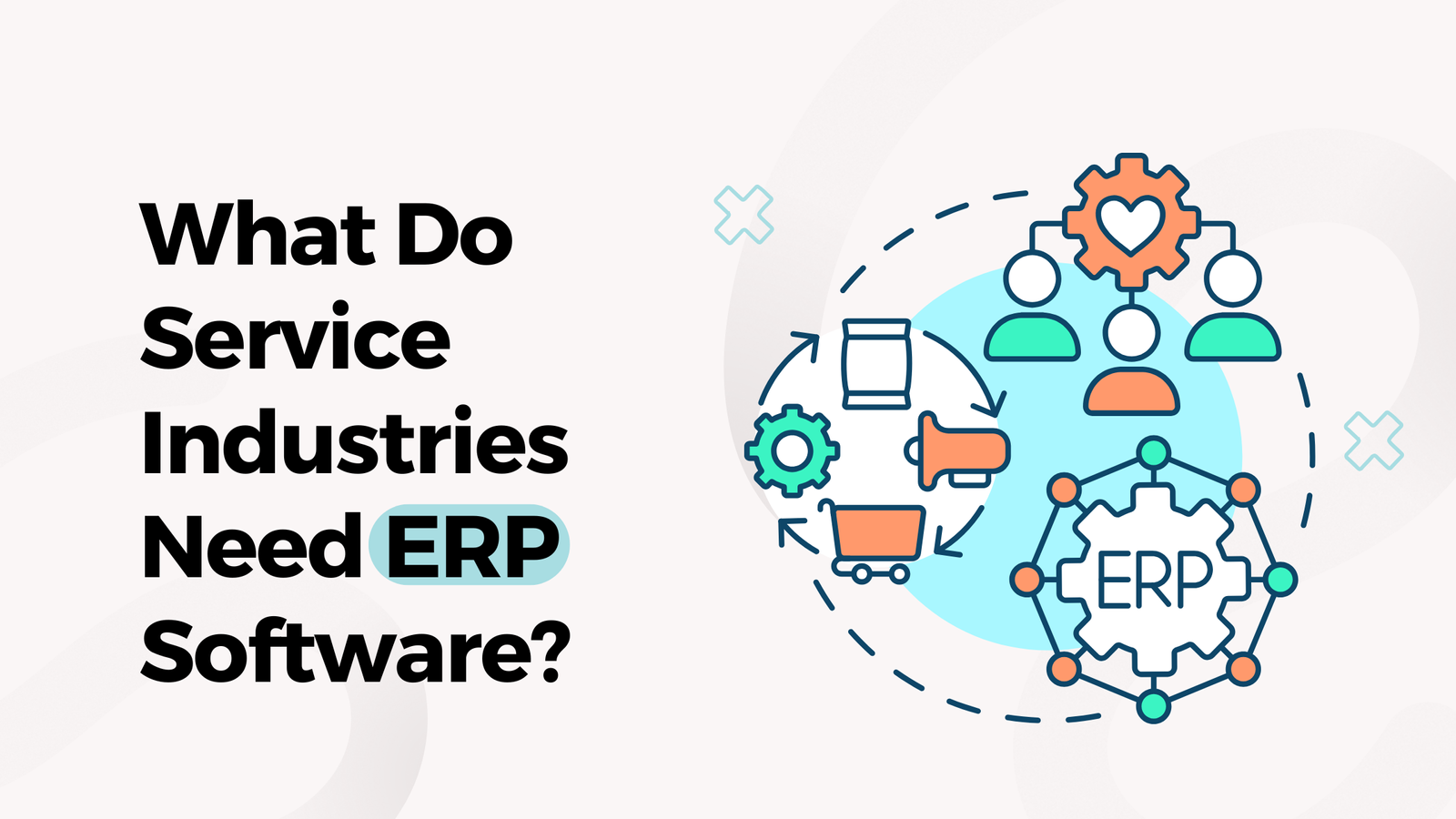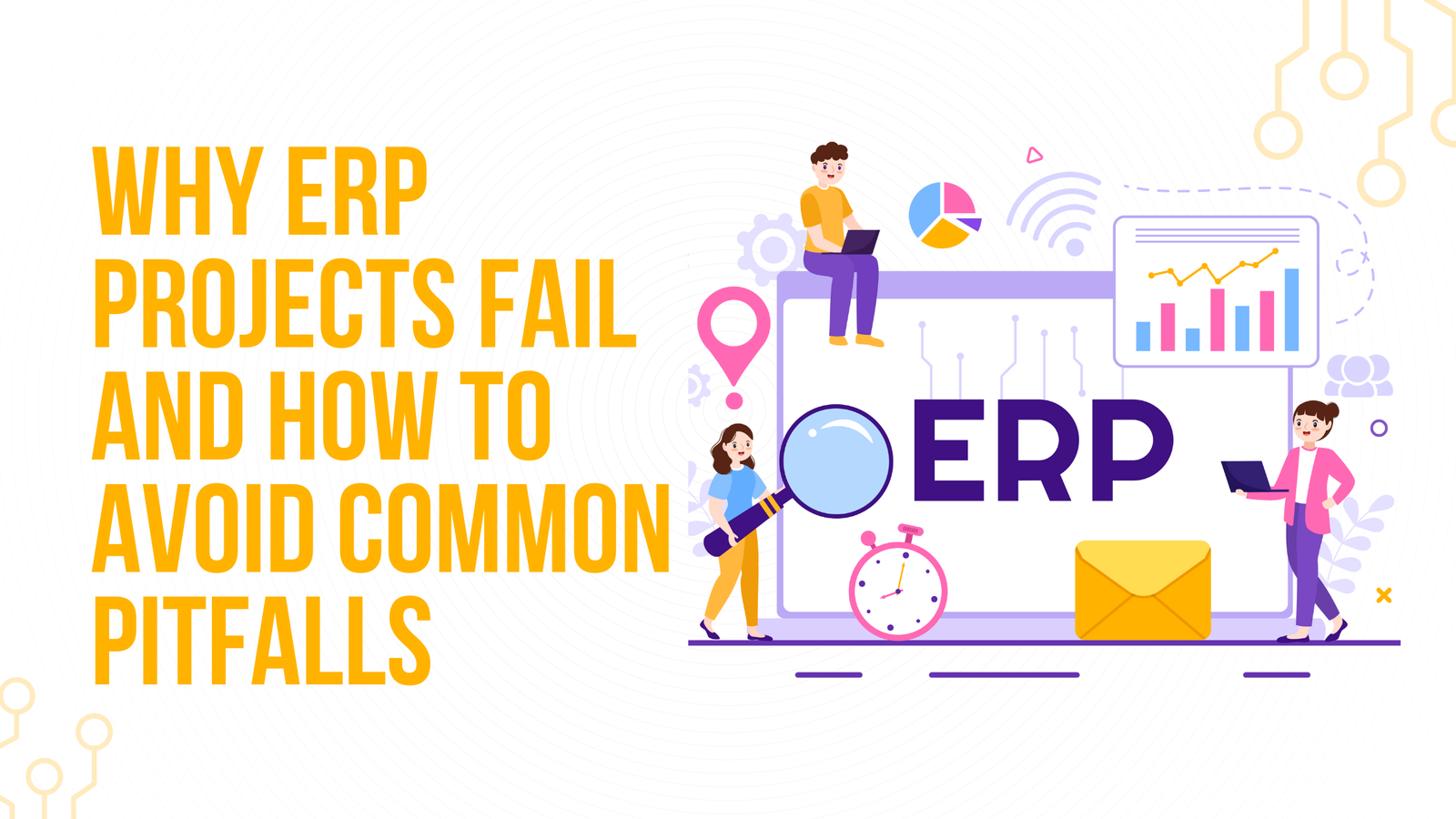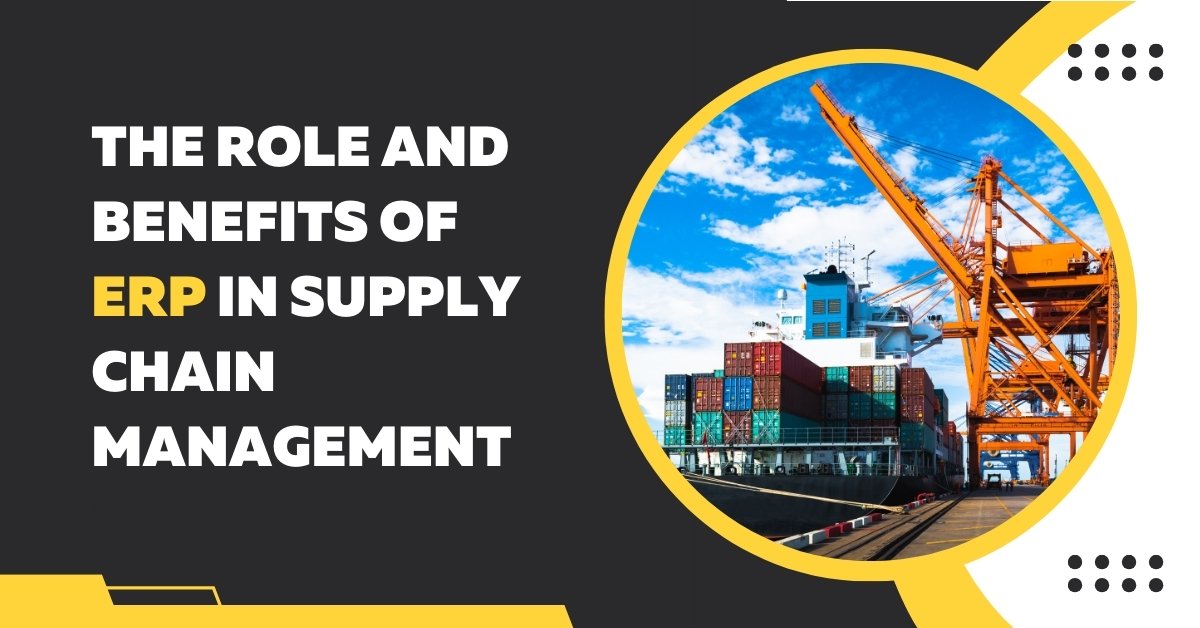Running a service-based business is more complex than it seems. Whether you’re a small consulting firm, a bustling healthcare provider, or a large IT service company, staying on top of your operations while delivering exceptional service can be overwhelming. This is where ERP (Enterprise Resource Planning) software comes in. But what exactly do service industries need from ERP software, and how can it help them thrive? Let’s break it down.
Understanding the Unique Needs of Service-Based Industries
Service industries are all about delivering value to customers. But unlike product-based businesses, service industries face unique challenges that require tailored solutions. Here are some of the key challenges service businesses deal with:
- Managing Multiple Client Projects Simultaneously: Whether it’s a marketing campaign, legal case, or healthcare plan, service businesses often juggle multiple projects that require precise tracking, deadlines, and resource allocation.
- Resource Allocation: Staff are the backbone of service businesses. Ensuring that the right person with the right skills is available at the right time can be a challenge without the right tools.
- Customer Communication: Clients need to be kept in the loop about service delivery, status updates, and timelines. Effective communication is key to maintaining strong relationships and repeat business.
- Time Tracking and Billing: Especially in industries like consulting, legal, and healthcare, accurately tracking time for billing and client invoicing is important.
- Data and Reporting: Service industries often have limited visibility into their performance without a centralized system for data tracking, reporting, and analysis.
ERP software is designed to address these challenges and bring all the operations of your service-based business into a unified system.
Key Features of ERP Software for Service-Based Businesses
The right ERP system for service industries needs to combine functionality with flexibility. Here’s a breakdown of the key features service businesses should look for:
1. Project Management Tools
Managing projects efficiently is at the heart of every service business. Whether you’re a law firm managing multiple legal cases or an IT company working on various client projects, an ERP system can significantly improve project management capabilities.
- Project Planning: With ERP, service businesses can create detailed project plans that include timelines, milestones, and resource allocation. You’ll be able to monitor the status of each project in real-time and make adjustments as needed.
- Time Tracking: Track billable and non-billable hours directly within the ERP system, allowing for accurate invoicing and better visibility into how resources are being utilized.
- Collaboration Features: Many ERP systems come with built-in communication tools that allow team members to collaborate in real time, ensuring that everyone is on the same page and that deadlines are met.
2. Service Scheduling & Resource Allocation
Service industries often require a great deal of flexibility in managing staff schedules and service appointments. An effective ERP system provides tools that streamline scheduling and optimize resource allocation:
- Appointment Scheduling: For businesses like healthcare providers, maintenance services, or consulting firms, ERP scheduling features allow you to book client appointments automatically based on resource availability. No more double-booking or missed opportunities.
- Resource Optimization: Use ERP to monitor the availability of both human and physical resources (e.g., office space, equipment). An automated system ensures that resources are assigned efficiently, reducing downtime and improving service delivery.
- Real-Time Updates: Keep your team and clients informed of any schedule changes or updates through automated notifications, ensuring there are no surprises.
3. CRM and Client Management
At its core, an ERP system helps service industries manage customer relationships effectively. From managing client communication to tracking customer interactions, a CRM integrated within the ERP system can significantly enhance customer service.
- Comprehensive Client Profiles: ERP systems store detailed information on clients, including contact details, preferences, past projects, and service history. This allows for personalized communication and targeted service delivery.
- Customer Interaction Tracking: Whether it’s a phone call, email, or in-person meeting, ERP allows you to track every interaction with a client. This ensures that your team is always aware of the latest updates and can follow up efficiently.
- Customer Feedback & Support: A built-in CRM can also help track customer issues, complaints, and feedback, making it easier to resolve problems quickly and improve service quality.
4. Automated Billing and Invoicing
Accurate and timely billing is a top priority for service-based businesses. An ERP system automates this process, ensuring that invoices are generated on time, reducing the risk of errors and improving cash flow.
- Automated Invoice Generation: ERP systems can generate invoices based on predefined billing cycles (e.g., hourly, project-based, or subscription model). This ensures you never miss a billing period and that your clients receive accurate invoices.
- Integration with Payment Systems: Many ERP systems offer integration with payment gateways, allowing clients to pay directly through the system. This makes it easier for both you and your customers.
- Invoice Customization: Service businesses can customize invoices to reflect specific client requirements, including itemized service charges, taxes, and discounts.
5. Financial Management and Reporting
Managing finances in a service industry can be tricky — particularly when it comes to balancing project costs, operational expenses, and revenue. ERP systems help with detailed financial oversight and reporting, offering service industries the following benefits:
- Revenue Recognition: Service-based businesses that use project-based billing need accurate tracking of revenue as projects progress. ERP systems help manage revenue recognition, ensuring that financial statements are correct and reflect the business’s true financial health.
- Cost Management: ERP software allows you to track both fixed and variable costs, making it easier to assess project profitability. You can keep a close eye on project expenses, ensuring that projects are delivered within budget.
- Detailed Financial Dashboards: With real-time financial dashboards, you’ll always know where your business stands. Track cash flow, profit margins, and other financial KPIs to make more informed decisions.
6. Scalability for Growing Businesses
As your service business grows, your ERP needs will evolve. Choosing an ERP system that scales with your business is essential. Look for systems that can be expanded as your operations grow:
- Customizable Modules: ERP systems should allow you to add or remove features as your needs change. For example, you may need to integrate more project management tools as your business expands, or add more customer support features.
- Cloud-Based ERP: Cloud ERP solutions are ideal for growing service industries. They offer flexibility, reduce upfront infrastructure costs, and allow you to add new features and users as needed. Plus, they can be accessed from anywhere, which is especially helpful if you have a remote workforce.
How to Choose the Right ERP for Your Service Business
With so many ERP solutions available, choosing the right one for your service business can be overwhelming. Here are some tips to help make the decision easier:
1. Industry-Specific Solutions vs. Generic ERP
While many ERP systems are designed to be general-purpose, industry-specific ERP systems come with tailored features that meet the unique needs of service businesses. Look for solutions built specifically for industries like healthcare, legal, or consulting, as they often come with templates and functionalities that are ready to use out of the box.
2. Integration with Existing Systems
Many service businesses rely on various software solutions for different aspects of their operations, such as accounting, HR, or customer support. Look for an ERP system that can easily integrate with these systems to create a unified workflow. Integration reduces the need for duplicate data entry and streamlines operations.
3. Focus on User Experience
An ERP system might be powerful, but if it’s not user-friendly, it won’t be effective. Choose a system with an intuitive interface that your employees can quickly learn to use without extensive training. ERP systems that are easy to navigate increase user adoption and improve productivity.
4. Cloud-Based ERP for Flexibility
Cloud-based ERP systems are increasingly popular due to their flexibility, scalability, and lower upfront costs. They also offer the benefit of being accessible from anywhere, which is crucial for businesses with remote teams or multiple locations.
5. Ongoing Support and Training
Look for an ERP provider that offers solid customer support and training resources. Your team will need to be trained on the new system, and having a support team available when issues arise is important to ensuring a smooth implementation and continued success.
Optimizing Service Industry Operations with the Right ERP System
In summary, ERP software is an essential tool for service industries looking to streamline their operations, improve resource management, and enhance customer satisfaction. With the right ERP system, you can optimize everything from project management and scheduling to billing and financial reporting. As your business grows, ERP can scale with you, providing the flexibility and support needed to succeed.
By selecting an ERP system that aligns with your business needs, you’ll be better positioned to tackle the unique challenges of the service industry while delivering exceptional experiences to your clients. The right ERP solution isn’t just a tool — it’s a strategic asset that can drive growth, efficiency, and long-term success. To ensure the system is tailored to your specific requirements, consider exploring ERP customization services in Pune, which can help you implement a solution that perfectly fits your business.



